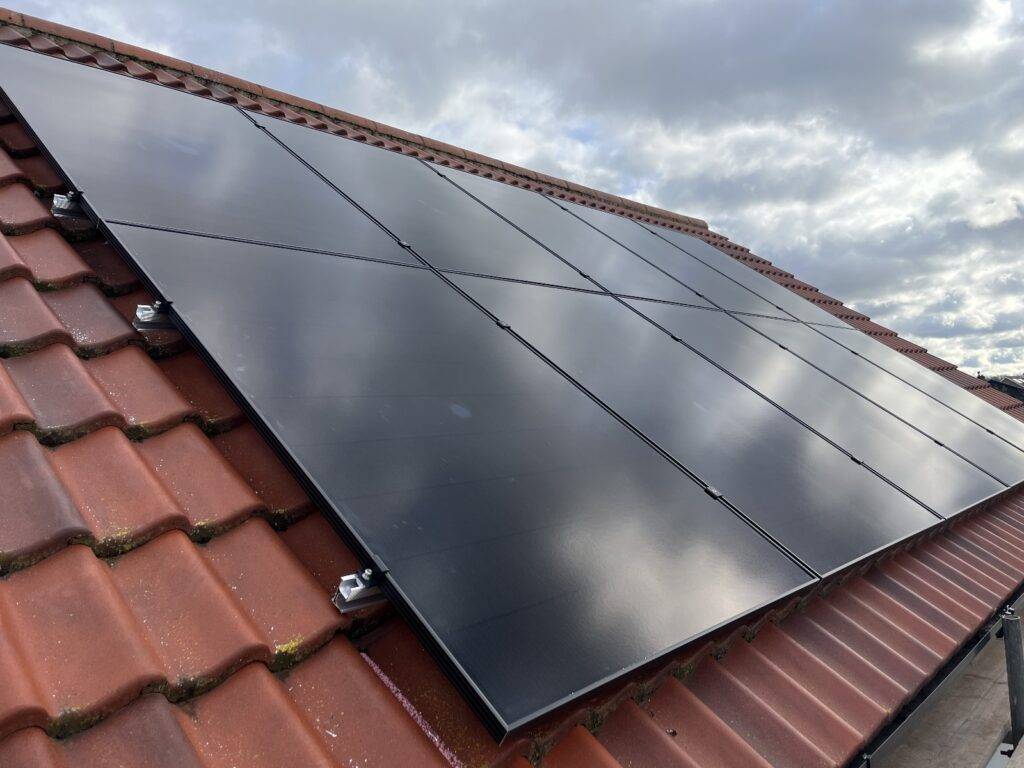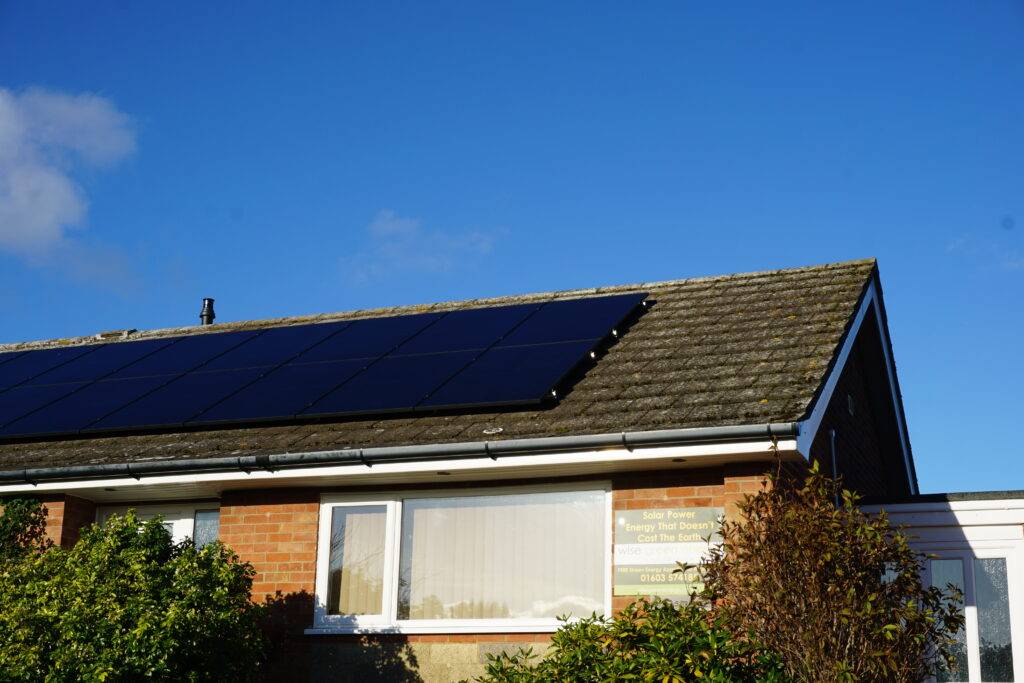The Cost of Installing Solar Panels on a Small House
In recent years, solar panels have become a popular choice for homeowners across the UK, including those in Norfolk and Suffolk. As the world increasingly shifts towards renewable energy, solar power offers a promising solution for reducing electricity bills and minimising carbon footprints. However, understanding the costs associated with installing solar panels on a small house is crucial for making an informed decision. This guide delves into the various factors influencing solar panel costs, provides a detailed breakdown, explores potential savings, and offers advice on financing options and obtaining quotes.
Table of Contents
Factors Influencing the Cost of Solar Panel Installation
Size of the System
The size of your solar panel system is one of the most significant factors affecting the overall cost. In general, the larger the system, the higher the cost. Solar panel systems are typically measured in kilowatts (kW). For a small house, a system size of 3-5 kW is often sufficient. The cost is proportional to the capacity of the system, so a larger system will cost more but may provide greater energy savings.
Type of Panels
The type of solar panels you choose can also impact the cost. There are three main types:
- Monocrystalline Panels: Known for their high efficiency and sleek appearance, these panels are made from a single silicon crystal. They tend to be more expensive but are often more efficient, requiring less space for the same amount of power generation.
- Polycrystalline Panels: Made from multiple silicon crystals, these panels are generally less efficient and less costly than monocrystalline panels. They offer a good balance between cost and performance.
- Thin-Film Panels: These are lightweight and flexible, but typically less efficient than crystalline panels. They can be a cost-effective option for larger installations or areas with less space.
Installation Complexity
The complexity of the installation can affect the cost significantly. Factors such as the type of roof (pitched, flat, slate, etc.), the condition of the roof, and the ease of access can all influence labour costs. For instance, installing panels on a slate roof or a steeply pitched roof can be more challenging and costly compared to a standard pitched roof.
Location
Local regulations and climate can also impact the cost of solar panel installation. In Norfolk and Suffolk, the cost may vary based on local council regulations, potential planning permissions required, and regional installation rates. Additionally, the UK climate, with its occasional cloudy weather, may affect the efficiency of solar panels, though modern systems are designed to work efficiently even in less-than-ideal conditions.

Breakdown of Costs
Panel Costs
The cost of solar panels is typically measured in pounds per watt (£/W). On average, the cost of solar panels ranges from £1.50 to £2.50 per watt. For a small house with a 4 kW system, this translates to an average cost of £6,000 to £10,000 for the panels alone. Prices may vary based on the type and brand of panels chosen.
Inverter Costs
Solar inverters are crucial as they convert the direct current (DC) generated by the panels into alternating current (AC) used in your home. There are two main types:
- String Inverters: These are the most common and typically cost between £500 and £1,000. They work well for systems where all panels are exposed to similar sunlight conditions.
- Microinverters: These are installed on each panel individually and cost between £1,000 and £2,000. They are more efficient in situations where panels might be shaded or have different orientations.
Labour Costs
Labour costs can vary based on the complexity of the installation and regional rates. On average, you can expect to pay between £1,500 and £3,000 for installation. This includes the cost of mounting hardware, electrical connections, and other associated labour.
Additional Costs
In addition to the panel and inverter costs, there are other expenses to consider:
- Mounting Hardware: Costs for brackets and mounts typically range from £500 to £1,000.
- Permits: Depending on local regulations, permit costs can range from £100 to £500.
- Other Expenses: Additional costs may include system monitoring equipment and potential roof repairs, which can add another £500 to £1,000.

Potential Savings and Benefits
Energy Savings
One of the primary benefits of installing solar panels is the reduction in energy bills. On average, a 4 kW solar panel system can save a homeowner between £400 and £600 per year on electricity costs. The actual savings will depend on your energy usage, the efficiency of your panels, and the amount of sunlight your home receives.
Increased Property Value
Solar panels can also increase the value of your property. Studies have shown that homes with solar panel systems can sell for a higher price than those without. In Norfolk and Suffolk, where renewable energy is becoming increasingly valued, this can be a significant benefit.
Environmental Impact
Installing solar panels contributes to a reduction in your carbon footprint. By generating clean, renewable energy, you reduce your reliance on fossil fuels and decrease your household’s greenhouse gas emissions. This not only benefits the environment but also aligns with the UK’s broader climate goals.
Financing Options for Small House Owners
Cash Purchase
Paying for solar panels outright is the most straightforward option and allows you to avoid ongoing costs. However, it requires a significant upfront investment. If you have the financial resources available, this option can provide the best return on investment as you will not incur any additional costs beyond the initial purchase.
Solar Loans
Solar loans allow you to finance the cost of your solar panel system over time. Typical solar loans come with terms ranging from 5 to 10 years and interest rates between 3% and 6%. This option can make solar panels more affordable by spreading the cost over several years, though it does involve additional costs in the form of interest payments.
Leases and Power Purchase Agreements (PPAs)
Leases and PPAs are alternative financing options where you either lease the solar panels from a provider or purchase the electricity they generate at a fixed rate. These options can be appealing as they often require little to no upfront cost. However, they usually come with long-term commitments and may not offer the same financial benefits as owning the system outright.
Steps to Estimate Costs and Get Quotes
Conducting a Home Energy Audit
Before installing solar panels, it’s essential to conduct a home energy audit. This process helps you understand your current energy usage and identify areas where you can improve efficiency. An energy audit can provide valuable information for sizing your solar panel system and estimating potential savings.
Getting Multiple Quotes
To ensure you get the best value, it’s advisable to obtain quotes from several solar panel installers. Compare the quotes based on the total cost, system components, installation quality, and warranty terms. This will help you make an informed decision and select the best offer for your needs.
Evaluating Warranty and Support
When choosing a solar panel provider, consider the warranty and support they offer. A good warranty should cover the panels for at least 10-25 years and include performance guarantees. Reliable customer support is also crucial for addressing any issues that may arise after installation.
Final Words
Installing solar panels on a small house in Norfolk or Suffolk offers numerous benefits, from reducing energy bills to increasing property value and contributing to environmental sustainability. By understanding the factors influencing costs, breaking down the expenses, and exploring financing options, you can make an informed decision that aligns with your financial and environmental goals.
It’s essential to conduct thorough research, obtain multiple quotes, and consider professional advice to ensure a cost-effective and successful solar panel installation. Embracing solar energy can be a rewarding investment that not only benefits your household but also supports the broader goal of a greener future. Wise Green Energy are here to guide you through any questions relating to solar power. We are experts when it comes to renewable energy, contact us for a no-obligation quote.

